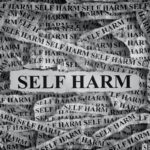
Sahar Seidl summarises a qualitative study on the ontological insecurity of inattentiveness, which looks at how risk management processes in acute psychiatric care can have a negative impact on patient recovery.
[read the full story...]
Sahar Seidl summarises a qualitative study on the ontological insecurity of inattentiveness, which looks at how risk management processes in acute psychiatric care can have a negative impact on patient recovery.
[read the full story...]
Derek de Beurs explores a meta-analysis which finds that randomised controlled trials of psychological interventions for depression rarely report assessments of suicide.
[read the full story...]
Anneka Tomlinson and Andrea Cipriani from the University of Oxford co-write this important blog on causes of mortality among those with bipolar disorder, highlighting the importance of suicide prevention across age groups.
[read the full story...]
Louise La Sala and Jo Robinson review a UK-wide case series study of young people who died by suicide, which explores their previous suicide-related online experiences.
[read the full story...]
Millie Witcher and Sarah Rowe appraise a randomised controlled trial on the effect of low-intensity treatments for self-harm among people with suicidal ideation, which has some important findings.
[read the full story...]
Amelia Talbot looks at a recent qualitative study of patient and carer perspectives, which explores the reasons why some patients do not receive a psychosocial assessment in emergency departments following self-harm.
[read the full story...]
Charlie Lynch and Derek Tracy review a study on childhood intellectual disability and parents’ wellbeing, which integrates social, psychological and genetic influences.
[read the full story...]
Holly Crudgington reviews a recent study from Manchester, which explores characteristics and risk of repetition in people who fail to report previous hospital presentations for self-harm.
[read the full story...]
In her debut blog, Jo Lockwood summarises a qualitative paper which finds that young people want GPs to initiate conversations about self-harm and suicide in primary care.
[read the full story...]
Georgie Parker reviews a mixed-methods study exploring psychiatry trainees understanding, experience of and competence assessing and managing digital risk.
[read the full story...]